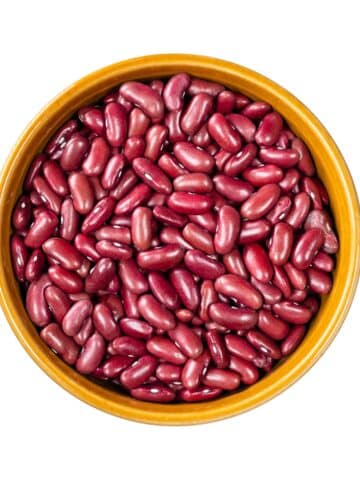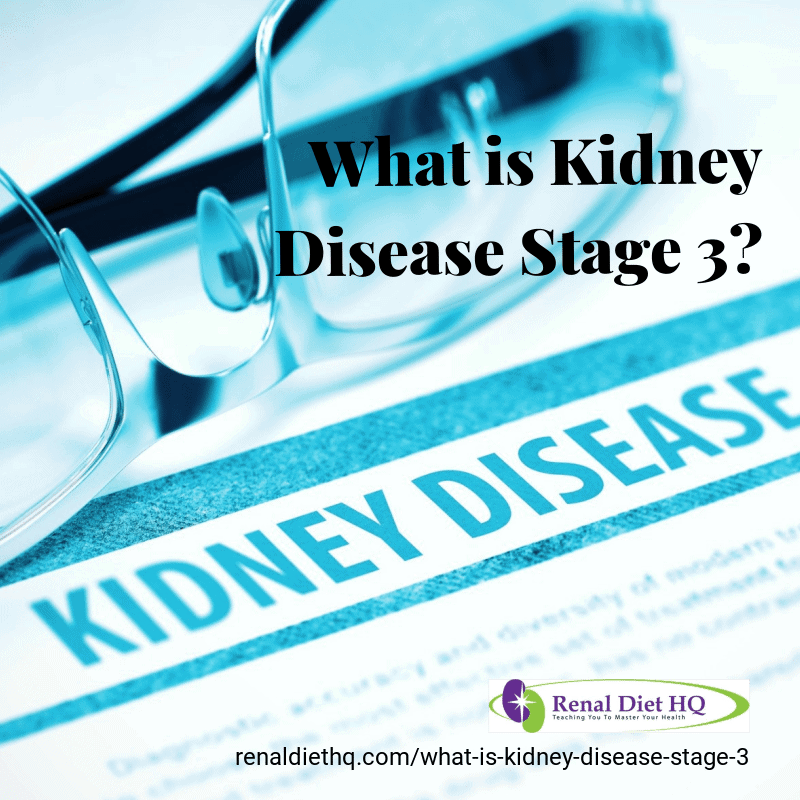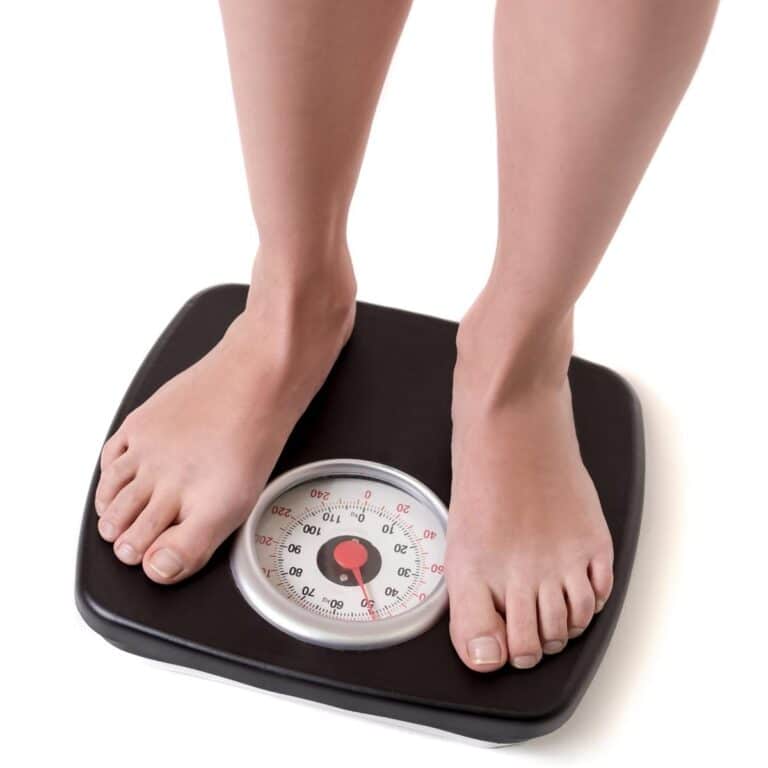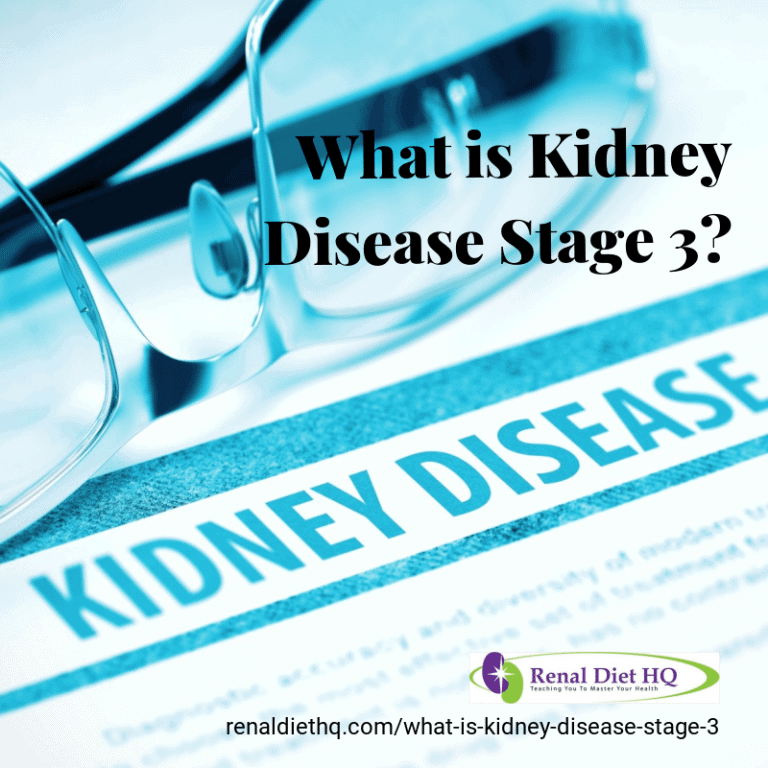CKD Progression
If you or someone you know has chronic kidney disease (CKD), understanding its progression is crucial for managing the disease and improving quality of life.
CKD is a progressive and irreversible illness that affects millions of people worldwide. It can lead to serious health complications, including kidney failure, heart disease, and stroke. However, there are ways to slow its progression and reduce complications through lifestyle changes, medical interventions, and early detection.
In this article, we will explore the stages of CKD progression and common symptoms associated with each stage. We will also discuss the factors that influence CKD progression, such as genetics, lifestyle choices, and medical interventions.
By understanding these factors, patients and healthcare providers can work together to manage the disease effectively and improve outcomes. Whether you are a patient or healthcare provider looking for evidence-based information on CKD progression, this article is for you.
Jump to:
- Key Takeaways
- What is CKD?
- Diagnosis and Tests
- Stages of Kidney Disease and Symptoms
- Factors that Influence Progression
- Lifestyle Changes
- Role of Diet
- Predicting Progression
- Treatment Options
- ACEIs and ARBs
- Age and Progression
- Challenges in Predicting Progression
- FAQs for CKD Progression
- Slowing CKD Progression Isn’t Impossible

Key Takeaways
- Chronic kidney disease (CKD) is a progressive illness that gets worse with time, and making strict changes to diet and lifestyle can slow or halt progression.
- CKD is divided into five stages based on the level of eGFR, and each stage is based on the eGFR number and has different symptoms and treatments, with the goal at each stage of CKD being to keep the kidneys working as long as possible.
- Indicators of fast CKD progression include younger age, certain ethnicities, hypertension, proteinuria, cardiovascular disease, longer duration of diabetes, lower kidney function, higher systolic blood pressure, and anemia.
- Lifestyle choices can slow CKD progression, including a diet high in fruits, vegetables, and whole grains, low in cholesterol, saturated fats, sugar, and preservatives, limited in sodium, and low in potassium and phosphorus, quitting smoking, and exercising regularly. Discontinuing certain medications may also slow CKD progression.
For More Recipes and Ideas --->> Get Your Free Meals and Recipes That Are Perfect for Pre-Dialysis Diets, Pre-Dialysis with Diabetes, or Dialysis Diets.
What is CKD?
So, you know that chronic kidney disease is a progressive illness that can be slowed down with changes to your diet and lifestyle, but what exactly is CKD?
CKD is a condition where your kidneys gradually lose function over time. This loss of kidney function can be caused by a number of factors such as high blood pressure, diabetes, inflammation, or genetic disorders such as polycystic kidney disease.
Prevention strategies are key in managing CKD. It's important to identify risk factors early on so that appropriate measures can be taken to reduce the progression of the disease. Risk factors include hypertension, diabetes, obesity, family history of kidney disease, and age.
Early detection through routine testing can help catch CKD in its earlier stages when treatment options are more effective. Treatment options for CKD depend on the stage of the disease. In earlier stages, lifestyle changes such as healthy eating habits and regular exercise can help slow down progression.
Medications (diet vs medication for CKD improvement) may also be prescribed to control blood pressure and manage symptoms associated with renal injury. Patient education plays an important role in managing this condition as patients need to understand how to monitor their symptoms and follow recommended guidelines for managing their health.
By working closely with healthcare professionals and making necessary lifestyle adjustments, individuals living with CKD can take steps towards improving their overall quality of life.
Diagnosis and Tests
To diagnose chronic kidney disease (CKD), your healthcare provider will conduct a series of tests and evaluations to assess your kidney function and overall health. These tests are crucial in determining the presence and severity of kidney disease (including acute kidney injury).
First, your doctor may review your medical history and discuss any symptoms you are experiencing. They will inquire about chronic diseases and risk factors such as diabetes, high blood pressure, family history of kidney disease, or other conditions that may contribute to kidney damage.
Next, a physical examination will be conducted, including measuring your blood pressure and checking for signs of fluid retention or swelling.
Blood tests are essential for diagnosing CKD. These tests measure various markers, including creatinine and blood urea nitrogen (BUN), which help evaluate kidney function. The estimated glomerular filtration rate (eGFR) is also calculated based on these results to determine the stage of CKD.
A urine test, known as a urinalysis, is performed to assess the presence of protein, blood, or other abnormalities in the urine. High levels of protein or blood can indicate kidney damage.
In some cases, imaging tests such as an ultrasound, CT scan, or MRI may be ordered to visualize the kidneys and identify any structural abnormalities or blockages.
A kidney biopsy may be conducted in certain situations where the cause or extent of kidney damage is uncertain. This involves removing a small sample of kidney tissue for examination under a microscope.
Throughout the diagnostic process, your healthcare provider will use these tests and evaluations to determine the presence and severity of chronic kidney disease. These findings will guide further treatment and management decisions to help preserve kidney function and prevent complications.
It is important to follow your healthcare provider's guidance and attend regular check-ups to monitor your kidney health effectively.
Stages of Kidney Disease and Symptoms
GFR
There are many factors that go into calculating the glomerular filtration rate, or GFR. This calculation is a fairly complicated equation that looks like this: GFR (ml/min/1.73m2) = 186 x (Creatinine / 88.4)-1.154 x (Age)-0.203 x (0.742 if female) x (1.210 if black).
To simplify, your race, gender, age, and serum creatinine results are all used to calculate a value that represents the health and function of your kidneys.
The results of your GFR are relatively easy to read. The highest “score”, representing 100% healthy functioning kidneys, starts at 100. So then, if a GFR comes back as 50, your kidneys are only performing at half of their normal function.
Using the GFR, you can determine what stage of kidney disease you are in. Each of these stages is typically marked by a progression of symptoms as well.
The first stages of kidney disease (improve my stage of CKD) often have no symptoms at all. Early stage kidney disease is most often only caught through routine examinations, which is why regular checkups are so important.
Stage 1: Normal or high GFR (GFR > 90 mL/min).
Most often, people do not find out that they have kidney disease until stage 2 or later because the kidneys are still functioning well. There is damage to the kidneys, but it is almost undetectable.
If the patient has high blood pressure or diabetes, doctors know to be on the lookout for kidney damage, which can be seen through imaging such as ultrasound, MRI, and CT scans.
Stage 2: Mild CKD (GFR = 60-89 mL/min).
Patients with stage 2 kidney disease may have very few to no symptoms typically present, but it is easily detectable through routine testing. If any symptoms are present, they are usually urinary issues.
Stage 3: Stage 3A (GFR = 45-59 mL/min) and stage 3B (GFR = 30-44 mL/min).
This is considered moderate damage, and this is where most of the symptoms of kidney disease come into play. Major urinary changes, fatigue, back pain, leg cramps, and fluid retention are all common in mild to moderate CKD stage 3.
Stage 4: Severe CKD (GFR = 15-29 mL/min).
Chronic kidney disease Stage 4 is considered to be severe, with symptoms drastically changing your life. Stage 4 often sees the symptoms of stage 3 worsening, plus nausea and vomiting, nerve issues such as tingling and numbness in the extremities, problems sleeping, loss of appetite, and more.
Stage 5: End Stage CKD (GFR <15 mL/min).
End-stage kidney disease or chronic kidney disease stage 5 is where kidney function must be replaced with either dialysis or transplant. At this stage, symptoms have continued to worsen dramatically.
Questions about kidney transplant?Patients may be experiencing changes in their appearance as well as very little to no urine output. At this point in time, dialysis or a kidney transplant may be required to replace kidney function.
The stages of kidney disease are ultimately decided by the glomerular filtration rate equation, but the symptoms of CKD are also a good measure of damage to the kidneys. If you do not already know your GFR, talk to your doctor about the stages of kidney damage and what you need to do to slow the progression of kidney damage and live a more comfortable life.
Factors that Influence Progression
To understand what factors can influence the progression of your chronic kidney disease, you need to pay attention to various aspects of your health and lifestyle. Genetics can play a role in how quickly your CKD progresses, as some people may be predisposed to faster deterioration of kidney function.
Additionally, ethnicity has been linked to different rates of CKD progression, with African Americans and Hispanic Americans experiencing more rapid declines in kidney function than Caucasians.
Hypertension is another factor that can accelerate the progression of CKD. High blood pressure damages the blood vessels in the kidneys, which reduces their ability to filter waste from the body effectively.
Proteinuria, or high levels of protein in urine, is also associated with faster progression of kidney disease. This condition indicates that there is damage to the filtering units (glomeruli) in your kidneys and requires prompt medical attention.
Cardiovascular disease (CVD) is a significant risk factor for progression of kidney disease. CVD refers to conditions that affect your heart and blood vessels' health, such as coronary artery disease or congestive heart failure.
These conditions can exacerbate kidney damage by impairing blood flow to the kidneys and increasing inflammation throughout the body. Moreover, high-risk patients with CKD are at risk of heart disease and cardiovascular mortality.
Diabetic patients are at increased risk as uncontrolled diabetes mellitus significantly accelerates the loss of kidney function. Persistently high blood sugar levels damage the small blood vessels and filters in the kidneys, leading to impaired kidney function and increased risk of complications such as diabetic nephropathy or diabetic kidney disease.
By addressing these risk factors through lifestyle changes and medical interventions like medication management or dialysis treatment (kidney disease treatment diet) if necessary early on in your CKD diagnosis journey could potentially slow down its progress significantly.
| Factors | Influence on Progression |
| Genetics | Predisposes some individuals towards faster decline |
| Ethnicity | African American & Hispanic Americans experience faster decline |
| Hypertension | Damages arteries and accelerates deterioration |
| Proteinuria | Indicates glomerular damage & requires prompt medical attention |
| Diabetes | High blood sugar levels damage the small blood vessels |
| CVD | Impairs blood flow & increases inflammation throughout body |
Lifestyle Changes
Changing your lifestyle habits can have a significant impact on slowing down the deterioration of your kidneys and reducing the risk of complications associated with chronic kidney disease (kidney disease treatment diet).
Healthy habits such as regular exercise routines, stress management techniques, and behavior changes can help you maintain good health.
Dietary modifications are also crucial in slowing down the progression of CKD. Limiting sodium intake (reduce sodium intake on a renal diet) is important to reduce fluid retention and lower blood pressure. Adequate protein intake is crucial for maintaining muscle mass, but excessive protein intake must be avoided as it increases kidney workload.
Engage a dietitian who is knowledgeable about CKD diet and nutrition for individualized medical nutrition therapy.
Regular physical activity has been shown to improve cardiovascular health, reduce inflammation, and lower blood pressure in individuals with CKD.
Moderate-intensity exercises such as walking or cycling for at least 30 minutes per day, 5 days a week can have significant benefits in improving overall health outcomes in patients with CKD.
Managing stress through relaxation techniques like meditation or deep breathing has also been found to be helpful in managing symptoms associated with CKD such as depression and anxiety.
Role of Diet
Diet plays a vital role in preventing or slowing the progression of chronic kidney disease (CKD). By making specific dietary choices, you can support your kidney health and reduce the burden on your kidneys. Here's how diet can help you in your journey:
- Controlling Blood Pressure: High blood pressure is a common cause and complication of CKD. By following a diet low in sodium and low in potassium-rich foods like fruits and vegetables, you can help regulate your blood pressure. Limiting processed foods, canned goods, and fast food, which are typically high in sodium, is important. Your healthcare provider may also recommend specific sodium restrictions tailored to your condition.
- Managing Protein Intake: Consuming an appropriate amount of protein is crucial for kidney health. However, in CKD, excessive protein intake can put a strain on the kidneys. Your healthcare provider may suggest limiting protein intake and focusing on high-quality sources such as lean meats, poultry, fish, and dairy products. Additionally, incorporating plant-based protein sources like legumes, tofu, and quinoa can provide variety and lower the burden on your kidneys.
- Controlling Fluid Intake: In advanced stages of CKD, fluid restriction may be necessary to prevent fluid overload and swelling. Your healthcare provider will guide you on the appropriate amount of fluid intake based on your individual needs and kidney function. Monitoring your fluid intake by measuring and tracking your urine output can be helpful.
- Managing Electrolyte Balance: CKD can disrupt the balance of electrolytes in your body, such as potassium and phosphorus. Your healthcare provider may advise you to limit high-potassium foods like bananas, oranges, and tomatoes if your blood levels are elevated. Similarly, controlling phosphorus intake by limiting foods like dairy products, processed meats, and carbonated drinks can help maintain balance.
- Monitoring and Individualized Approach: Each person's dietary needs in CKD can vary based on the stage of the disease, other medical conditions, medications, and individual tolerances. Regular monitoring of blood tests, such as creatinine, BUN, and electrolyte levels, will help your healthcare provider assess your kidney function and guide dietary recommendations specific to you.
Remember, it is essential to work closely with your healthcare team, including a registered dietitian, who specializes in kidney disease management. They can provide personalized dietary guidance based on your specific needs, taking into account factors like nutrient requirements, weight management, and other health conditions you may have.
By making mindful dietary choices, you can positively impact your kidney health and potentially slow the progression of CKD (progression of symptoms for CKD).
Predicting Progression
Monitoring and predicting the progression of chronic kidney disease (CKD) is crucial for managing your condition effectively. Your healthcare provider will use various tools and tests to assess your kidney function and track any changes over time.
One method commonly used to monitor CKD progression is through regular blood tests. These tests measure markers such as creatinine and blood urea nitrogen (BUN) to evaluate kidney function (how to improve bun level).
The estimated glomerular filtration rate (eGFR) is calculated based on these results, providing an indication of the stage and progression of CKD. Your healthcare provider will compare eGFR values over time to assess the rate at which your kidney function is declining.
As mentioned, urine tests, such as a urinalysis, are also essential for monitoring CKD. These tests measure the presence of protein, blood, or other abnormalities in your urine.
In addition to laboratory tests, your healthcare provider may use imaging studies such as ultrasounds or CT scans to assess the structure and function of your kidneys. These tests can identify any abnormalities or changes that may affect kidney function.
Regular check-ups with your healthcare provider are vital for ongoing monitoring of CKD and preventing progression to end stage renal disease. They will review your test results, assess any changes in symptoms or risk factors, and adjust your treatment plan accordingly.
It is important to attend scheduled appointments and follow your healthcare provider's recommendations for monitoring your CKD. Regular monitoring allows for early detection of changes in kidney function, enabling timely interventions to slow down the progression of the disease and minimize complications.
Treatment Options
When it comes to treating chronic kidney disease (CKD), several options are available to help manage the condition and slow down its progression. Your healthcare provider will determine the most appropriate treatment plan based on the stage of your CKD and other individual factors.
Medications play a crucial role in managing CKD. Your healthcare provider may prescribe medications to control blood pressure, such as angiotensin-converting enzyme (ACE) inhibitors or angiotensin II receptor blockers (ARBs). These medications help lower blood pressure and protect the kidneys from further damage.
In cases where CKD has led to anemia, your healthcare provider may recommend erythropoiesis-stimulating agents (ESAs) to stimulate red blood cell production or iron supplements to address iron deficiency.
If you experience high levels of phosphorus or potassium in your blood, medications called phosphate binders or potassium binders may be prescribed to help regulate these electrolytes.
In advanced stages of CKD, when there is severe renal function decline (end stage kidney disease or renal failure), your healthcare provider may discuss options for renal replacement therapy. This includes kidney transplantation or dialysis.
Kidney transplantation involves surgically replacing a damaged kidney with a healthy kidney from a donor. It offers the best long-term outcome for restoring kidney function. However, finding a suitable donor and going through the transplantation process may take time.
Dialysis is a procedure that filters waste products and excess fluid from your blood when your kidneys can no longer perform this function adequately. There are two main types of dialysis: hemodialysis, where blood is filtered outside the body using a machine, and peritoneal dialysis, where the lining of your abdomen filters the blood. Your healthcare provider will help determine the most appropriate dialysis modality for you.
Your healthcare provider will discuss the treatment options available to you based on your specific circumstances as guided by clinical practice guidelines. It is important to have open and regular communication with your healthcare team to make informed decisions about the most suitable treatment approach for your CKD.
ACEIs and ARBs
ACE inhibitors and ARBs are medications that can help control blood pressure and protect the kidneys for those living with chronic kidney disease. ACE inhibitors work by blocking an enzyme that causes blood vessels to narrow, while ARBs block a hormone receptor that causes blood vessels to tighten.
Both medications have been shown to slow the progression of CKD and reduce proteinuria, which is a common complication of kidney disease.
When prescribing ACE inhibitors or ARBs, it is important to consider dosing recommendations based on the patient's kidney function. These medications can cause changes in electrolyte levels, particularly potassium, so it is important to monitor these levels regularly.
Patients should also be educated about potential side effects such as dizziness or dry cough, and how to manage them if they occur. While ACE inhibitors and ARBs are effective treatments for CKD progression (ckd and diabetes medications), there may be alternative treatments available depending on the individual case.
It is important for patients to discuss all treatment options with their healthcare team in order to make informed decisions about their care plan. In addition to medication management, lifestyle modifications such (kidney disease lifestyle changes) as diet changes and regular exercise can also play a role in slowing the progression of CKD.
Age and Progression
As you age, your risk of experiencing rapid decline in kidney function and complications related to chronic kidney disease increases, which can be an intimidating prospect. Age is one of the many risk factors that affect the progression of CKD.
Studies have shown that individuals aged 80 or older are more likely to experience fast CKD progression than those who are younger. Additionally, participants aged 25-54 have double the odds of a rapid eGFR decline compared to those over age 65.
Apart from age, other risk factors such as genetic influence, racial disparities, and comorbidities also play a significant role in the progression of CKD. For instance, African Americans and Hispanics are at higher risk for developing CKD and progressing faster to ESRD due to higher rates of hypertension and diabetes. Comorbidities such as cardiovascular disease also contribute significantly to the progression of CKD.
Clinical management plays an essential role in slowing down the progression of CKD. Early detection through regular checkups is crucial in monitoring kidney function and implementing interventions early enough before reaching advanced stages.
A multidisciplinary approach involving diet therapy, lifestyle changes such as physical activity cessation (exercise for healthy heart), and smoking cessation among others can help delay disease progression significantly.
Engaging with healthcare professionals experienced in managing CKD will ensure personalized care that aligns with individual needs and goals towards better clinical outcomes.
Challenges in Predicting Progression
Predicting how chronic kidney disease will progress can be challenging due to the many factors that influence its trajectory, but continued research is helping to fill in the larger picture over time.
There are several limitations to predicting CKD progression, including the fact that individual studies can only examine a certain number of factors at one time. Collectively, studies provide small pieces that help fill out the larger picture over time.
Despite these challenges, researchers have identified several predictors of fast CKD progression. These include younger age, certain ethnicities, hypertension, proteinuria, cardiovascular disease, longer duration of diabetes (for patients with diabetes), lower kidney function, higher systolic blood pressure and anemia.
Although some lifestyle choices can slow CKD progression such as a diet high in fruits and vegetables (fresh or canned vegetables for a renal diet) and low in cholesterol and saturated fats; quitting smoking; and exercising regularly; finding accurate predictors of CKD progression remains a challenge.
There are solutions being developed to overcome these challenges. For instance, accurate prediction models based on multiple risk factors could result in more personalized treatments for patients with chronic kidney disease.
Additionally, greater collaboration between researchers from different disciplines could lead to new insights into understanding this complex illness and developing effective treatment strategies for slowing down its progression.
FAQs for CKD Progression
Chronic kidney disease (CKD) isn't curable or reversible, but its progression can be slowed down with dietary interventions, lifestyle changes, medication options, complementary therapies, and surgical interventions. It's important to work closely with your healthcare team to develop a personalized treatment plan that suits your specific needs.
Dietary interventions, such as limiting sodium intake and ensuring adequate protein, can delay CKD progression and prevent or treat complications like anemia and mineral disorders. Lifestyle changes, such as quitting smoking and exercising regularly, also play a crucial role in slowing down CKD progression.
Medication options, like ACE inhibitors or ARBs, can control blood pressure and reduce proteinuria, while complementary therapies, like acupuncture, may help manage symptoms.
In some cases, surgical interventions, like kidney transplant or dialysis, may be necessary for end-stage renal disease (ESRD).
Stress and anxiety can have a negative impact on your mental health and may lead to lifestyle factors that could worsen chronic kidney disease progression.
Although there's limited research on the direct effects of stress and anxiety on CKD, studies suggest that managing mental health through coping mechanisms such as exercise, therapy, meditation, or medication can improve overall health outcomes in patients with CKD.
Moreover, lifestyle changes such as reduced sodium intake, regular exercise, quitting smoking, and limiting alcohol consumption (alcohol and dialysis) can reduce stress levels and promote better mental health.
It's important to consult with a healthcare professional to develop an individualized treatment plan that addresses both physical and mental health concerns for patients with CKD.
Sex differences can play a role in the progression of chronic kidney disease (CKD). Hormonal factors, genetic predisposition, and socioeconomic status are all possible contributors to this difference.
Studies have shown that men tend to progress more quickly through the stages of CKD than women. However, other studies suggest that this may be due to differences in dietary habits and lifestyle choices between genders rather than inherent biological differences.
Regardless, both men and women with CKD should prioritize early detection and management to slow down the disease's progression. Regular check-ups with a nephrologist and following a personalized diet plan can help manage CKD's complications and improve overall health outcomes.
Preventive measures for chronic kidney disease (CKD) include lifestyle changes and dietary interventions. Regular exercise, maintaining a healthy weight, quitting smoking, and limiting alcohol intake can slow the progression of CKD.
A diet low in sodium, protein, phosphorus, and potassium is recommended to delay progression and prevent complications. Consult with a registered dietitian knowledgeable in CKD nutrition for individualized medical nutrition therapy.
Immunizations such as the flu vaccine and pneumococcal vaccine can also protect against infections that may worsen CKD symptoms.
Pharmacological options such as angiotensin-converting enzyme inhibitors (ACEIs) or angiotensin receptor blockers (ARBs) are commonly used to treat high blood pressure in patients with CKD and have been shown to slow the progression of the disease.
However, medication management should be under the guidance of a healthcare provider.
While there is no cure for CKD, preventive measures can significantly improve outcomes for those at risk or already diagnosed with this progressive illness.
Slowing CKD Progression Isn’t Impossible
Managing chronic kidney disease (CKD) requires strict changes to your diet and lifestyle to slow or halt its progression. The five stages of CKD are determined by the eGFR test, each with its own symptoms and treatments aimed at preserving kidney function.
Indicators of fast CKD progression include factors such as age, ethnicity, hypertension, proteinuria, cardiovascular disease, and anemia.
Making positive lifestyle choices, such as following a kidney-friendly diet rich in fruits, vegetables, and whole grains while limiting cholesterol, saturated fats, and sodium, can help slow CKD progression. Quitting smoking, exercising regularly, and carefully managing medications can also have a beneficial impact.
By taking proactive steps and working closely with your healthcare team, you can maintain kidney function for as long as possible, improving your overall quality of life and well-being.
Remember, small changes today can make a significant difference in managing CKD and ensuring the health of your kidneys in the long run.









I really appreciate you helping me learn more about chronic kidney disease. My friend Tom has been diagnosed with stage 2 kidney disease. And you are right in saying that there are very few to no symptoms are present on this stage. He's not even aware that he is sick. I will share this information with him, this might help.